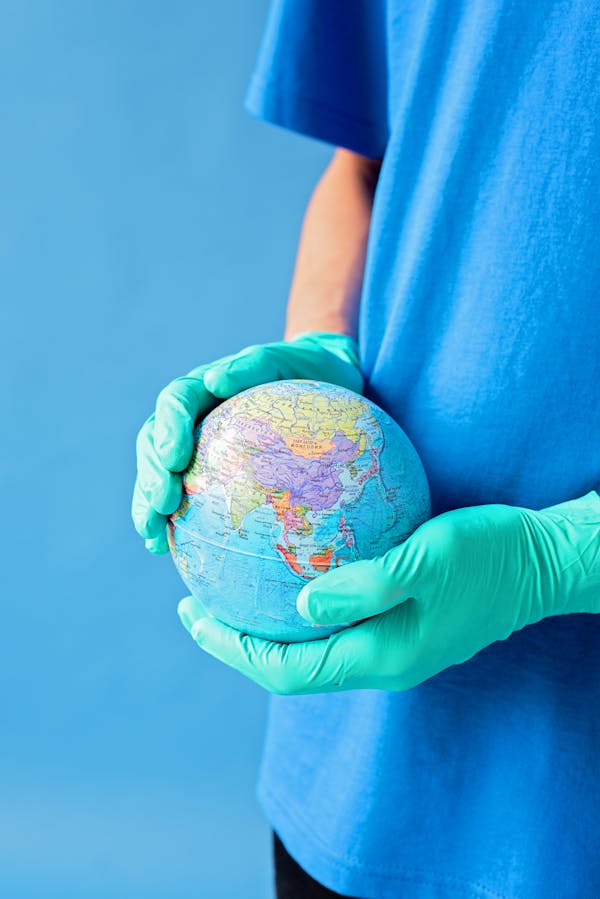Inequity in global vaccination has in the last couple of years been rated among the most challenges in public health. The COVID-19 pandemic brought this problem into sharp focus, since the availability of the vaccine was heavily skewed toward wealthier nations.
As many countries have made great strides in developing vaccines against diseases like COVID-19, Marburg, and other emerging threats, the difference between rich and poor keeps on increasing.
As many countries have made great strides in developing vaccines against diseases like COVID-19, Marburg, and other emerging threats, the difference between rich and poor keeps on increasing.
What is Vaccine Equity?
Vaccine inequity is considered as unequal access to lifesaving vaccines, where the wealthy countries have, so far, been able to purchase and distribute the vaccines a lot quicker and more feasibly than the poor countries.
This has been well documented in COVID-19 vaccine distribution; whereas countries like the U.S., the UK, and those in Europe quickly introduced vaccines, most low-income nations struggled to get even a fraction of the needed doses.
This has been well documented in COVID-19 vaccine distribution; whereas countries like the U.S., the UK, and those in Europe quickly introduced vaccines, most low-income nations struggled to get even a fraction of the needed doses.
The WHO and other international bodies have reiterated that vaccine inequity is a health, economic, and ethical issue. Inequitable vaccine distribution sustains the pandemic, nurtures new variants, and causes more deaths.
The Role of Wealthy Nations and Vaccine Hoarding
Hoarding vaccines also became a grave cause for concern during the COVID-19 pandemic. Wealthier nations purchase vaccines in bulk from companies, at times more than what their populations needed.
Countries like Canada, the U.K., and the U.S. had reportedly bought many times more doses than required for their citizens. This, in turn, left the poorer countries in a lurch to get access to even a fraction of the required vaccines to protect their people.
Countries like Canada, the U.K., and the U.S. had reportedly bought many times more doses than required for their citizens. This, in turn, left the poorer countries in a lurch to get access to even a fraction of the required vaccines to protect their people.
For example, many countries in Africa, such as Rwanda, have had to wait for vaccine supplies. But despite global efforts to ensure fair access to vaccines, such as COVAX, low-income countries were at the back of the queue and waited months longer than their wealthier counterparts to get vaccinated. The consequences of these delays were devastating: in too many places, the virus continued to spread unabated, causing more illness and deaths, and setting back economic development.
The Impact on Global Health

Vaccine inequity has far-reaching impacts beyond the confines of single nations. Indeed, when a larger part of the world's population goes unvaccinated, new virus variants are more likely to emerge.
This happened in COVID-19, as certain variants, like Delta and Omicron, rapidly arose among the unvaccinated populations in other areas of the world. These variants kept the pandemic going, with fresh waves of infection, lockdowns, and economic setbacks.
This happened in COVID-19, as certain variants, like Delta and Omicron, rapidly arose among the unvaccinated populations in other areas of the world. These variants kept the pandemic going, with fresh waves of infection, lockdowns, and economic setbacks.
The unfair distribution of vaccines has also caused losing control over other infectious diseases. Resources that might have been used to fight against polio, measles, and tuberculosis had to be used to fight the outbreaks of COVID-19 in areas with poor health infrastructure.
Vaccine Inequity Crisis
The solution to global vaccine inequity has several facets. First, there has to be a collaboration of global organizations and governments in scaling up the production capacity, thereby reducing barriers to vaccine distribution. Initiatives such as vaccine patent waivers are ways to enable more local manufacturing of vaccines by countries and increase overall global supply.
What's more, international organizations such as the WHO, GAVI, and COVAX must continue to advocate more and more for equitable distribution models of vaccines. Richer countries should donate excess doses to low-income nations and support infrastructure development to ensure vaccines are able to be stored and distributed effectively.
Another critical solution is public-private partnership: pharmaceutical companies and governments should join efforts to make vaccines more affordable for poor countries. Strengthening health systems and the local production of vaccine products would ensure that future vaccines, whether for COVID-19 or Marburg or some other disease, are more equitably distributed.
Inequality,
Global vaccine inequity is not solely an equity issue; it is a global health risk. Equitable access to vaccines promises better control of pandemics, reduces the chances of new variants, and will make the world a much healthier and safer place.
While a lot has been done, much more needs to be covered in closing the gap between the wealthiest and poorest nations in accessing vaccines. This is, therefore, a moment for commitment and cooperation where no one should be left behind in the efforts toward deadly diseases.
While a lot has been done, much more needs to be covered in closing the gap between the wealthiest and poorest nations in accessing vaccines. This is, therefore, a moment for commitment and cooperation where no one should be left behind in the efforts toward deadly diseases.






